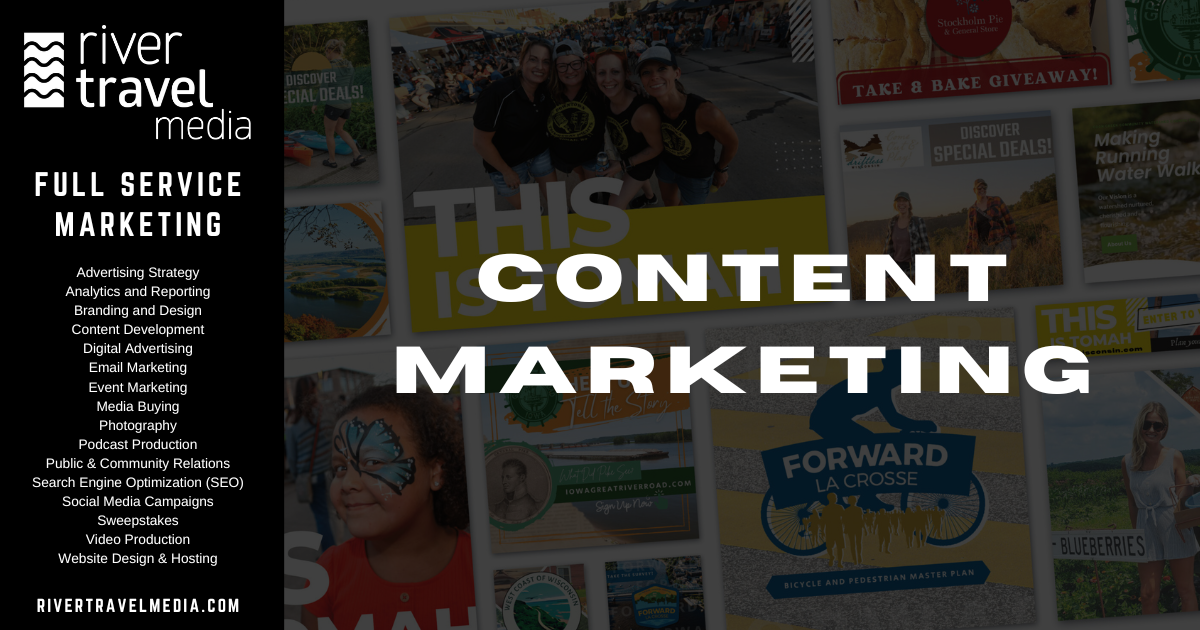The Power of Content Marketing: A Comprehensive Guide
Consumers come across advertisements and promotional messages everywhere they look, and content marketing has emerged as a vital strategy for businesses to engage and retain their target audience. But what exactly is content marketing, and why is it so important for the success of your destination? In this blog, we’ll explore the fundamentals of content marketing, its benefits, and how to create an effective content marketing strategy.
What is Content Marketing?
Content marketing is a strategic approach focused on creating and distributing valuable, relevant, and consistent content to attract and engage a clearly defined audience, with the ultimate goal of driving profitable customer actions. Unlike traditional advertising, which directly promotes products or services, content marketing aims to provide useful information that solves problems, educates, or entertains the audience.
Why is Content Marketing Important?
- Builds Trust and Credibility: By consistently delivering valuable content, businesses can establish themselves as industry leaders and gain the trust of their audience. Trust is an important factor in converting prospects into customers.
- Boosts SEO and Organic Traffic: High-quality content is essential for improving search engine rankings. Regularly updated blogs, articles, and other content types help search engines index your site, making it more likely to appear in search results.
- Enhances Customer Engagement: Content marketing fosters a deeper connection with the audience. Interactive and engaging content encourages users to spend more time on your site, interact with your brand, and share your content.
- Generates Leads and Conversions: Effective content marketing attracts potential customers and guides them through the buyer’s journey. By providing valuable information at each stage, you can nurture leads and increase the likelihood of conversions.
- Cost-Effective Marketing: Compared to traditional marketing methods, content marketing is often more cost-effective. While it requires an investment of time and resources, the long-term benefits and returns on investment can be substantial
Key Components of a Content Marketing Strategy
- Define Your Goals: Start by identifying what you want to achieve with your content marketing efforts. Common goals include increasing brand awareness, driving traffic, generating leads, and boosting sales.
- Understand Your Audience: Conduct research to understand your target audience’s needs and preferences. Creating detailed buyer personas can help tailor your content to resonate with your audience.
- Content Creation: Develop a content plan that outlines the types of content you will create, such as blog posts, videos, infographics, podcasts, and social media updates. Focus on producing high-quality, valuable content that addresses your audience’s needs.
- Content Distribution: Choose the right channels to distribute your content. This may include your website, social media platforms, email newsletters, and third-party sites. Ensure your content is optimized for each platform to maximize reach and engagement.
- Measure and Analyze: Use analytics tools to track the performance of your content. Key metrics to monitor include website traffic, engagement rates, lead generation, and conversion rates. Use this data to refine your strategy and improve future content.
Best Practices for Content Marketing
- Consistency is Key: Maintain a regular publishing schedule to keep your audience engaged and coming back for more.
- Quality Over Quantity: Focus on creating high-quality content that provides real value to your audience, rather than producing a large volume of mediocre content.
- SEO Optimization: Incorporate relevant keywords naturally into your content to improve search engine visibility.
- Engage with Your Audience: Encourage comments, shares, and feedback from your audience. Engage with them by responding to comments and messages promptly.
- Repurpose Content: Maximize the value of your content by repurposing it across different formats and platforms. For example, turn a blog post into a video or an infographic.
Conclusion
Content marketing is a powerful tool for building relationships with your audience, driving organic traffic, and ultimately achieving your business goals. By focusing on creating valuable, relevant content and strategically distributing it, you can establish your brand as a trusted authority in your industry.
For further reading and up-to-date insights on content marketing, consider exploring resources from the Content Marketing Institute, HubSpot, and Neil Patel.
Contact River Travel Media for more information on our services.
Contact River Travel Media for more information on our services.
References
- Content Marketing Institute. (2023). “What is Content Marketing?”. Retrieved from Content Marketing Institute
- HubSpot. (2023). “The Ultimate Guide to Content Marketing in 2023”. Retrieved from HubSpot
- Neil Patel. (2023). “Content Marketing Made Simple: A Step-by-Step Guide”. Retrieved from Neil Patel
- Moz. (2023). “The Beginner’s Guide to Content Marketing”. Retrieved from Moz
- Search Engine Journal. (2023). “How to Create a Content Marketing Strategy”. Retrieved from Search Engine Journal

